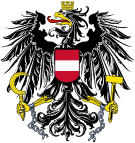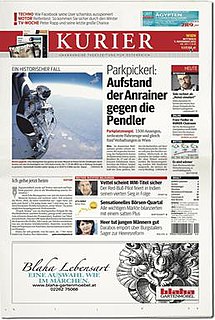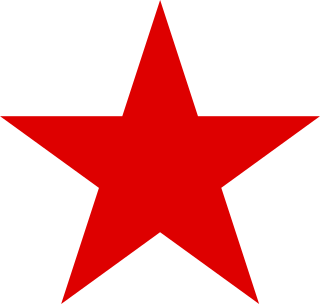| |
All 56 seats in the Landtag of Lower Austria All 9 seats in the state gouverment 29 seats needed for a majority | |
|---|---|
| This article is part of a series on the |
| Politics of Austria |
|---|
 |
|
|
|
|
The Lower Austrian state election of 2008 was held in the Austrian state of Lower Austria on 9 March 2008. [1] They were contested by the Austrian People's Party, the Social Democratic Party of Austria, The Greens – The Green Alternative and the Freedom Party of Austria, all of whom are in the current Landtag, and a number of smaller parties.

Austria, officially the Republic of Austria, is a country in Central Europe comprising 9 federated states. Its capital, largest city and one of nine states is Vienna. Austria has an area of 83,879 km2 (32,386 sq mi), a population of nearly 9 million people and a nominal GDP of $477 billion. It is bordered by the Czech Republic and Germany to the north, Hungary and Slovakia to the east, Slovenia and Italy to the south, and Switzerland and Liechtenstein to the west. The terrain is highly mountainous, lying within the Alps; only 32% of the country is below 500 m (1,640 ft), and its highest point is 3,798 m (12,461 ft). The majority of the population speaks local Bavarian dialects as their native language, and German in its standard form is the country's official language. Other regional languages are Hungarian, Burgenland Croatian, and Slovene.

Austria is a federal republic made up of nine states, known in German as Länder. Since Land is also the German word for "country", the term Bundesländer is often used instead to avoid ambiguity. The Constitution of Austria uses both terms. Even though English "land" is a cognate, the term (Bundes)land is commonly rendered as "state" or "province" by tradition in English writing.

Lower Austria is the northeasternmost of the nine states of Austria. Since 1986, the capital of Lower Austria has been St. Polten, the most recently designated capital in Austria. Previously, Lower Austria's capital was Vienna, even though Vienna has not officially been part of Lower Austria since 1921. With a land area of 19,186 km2 (7,408 sq mi) and a population of 1.612 million people, Lower Austria is the country's largest state; it is the second most populous after the federal state of Vienna. Other main cities are Amstetten, Krems an der Donau and Wiener Neustadt.
The ÖVP had earlier indicated that its preferred date would have been the 20 April 2008, [2] though 13 April 2008 had also been considered a possible date. [3] The newly founded party The Christians contested its first election. [4]
A poll, conducted in October 2007 by Integral for the newspaper Kurier, showed the following voting intentions: [5]

In mathematics, an integral assigns numbers to functions in a way that can describe displacement, area, volume, and other concepts that arise by combining infinitesimal data. Integration is one of the two main operations of calculus, with its inverse operation, differentiation, being the other. Given a function f of a real variable x and an interval [a, b] of the real line, the definite integral

Kurier is a German language daily newspaper based in Vienna, Austria.
- ÖVP: 50%
- SPÖ: 31%
- Greens: 9%
- FPÖ: 9%
- BZÖ: 1%
In total, nine parties contested the election. SPÖ, ÖVP, FPÖ, the Greens and the Communist Party of Austria contested the election in all districts. The Alliance for the Future of Austria (BZÖ) contested the election in seventeen of the twenty-one districts, having failed to gather the necessary fifty signatures in Lilienfeld, Neunkirchen, Waidhofen a.d. Thaya and Wiener Neustadt. The Christians contested the election in all districts except Bruck a.d. Leitha. The List for Our Lower Austria (Liste für unser Niederösterreich, LNÖ) contested the election in Baden, Gänserndorf, Lilienfeld, Neunkirchen, St. Pölten and Wiener Neustadt, and the Animal Rights Party (Tierrechtspartei) contested the election only in Mödling. [6]

The Communist Party of Austria is a communist party in Austria. Established in 1918 as the Communist Party of German-Austria (KPDÖ), it is one of the world's oldest Communist parties. The KPÖ was banned between 1933 and 1945 under both the Austrofascist regime and the Nazi German control of Austria after the 1938 Anschluss. It played an important role in the Austrian resistance against the Nazis.

The Alliance for the Future of Austria is a right-wing populist and national conservative political party in Austria.

Lilienfeld is a city in Lower Austria (Niederösterreich), Austria, south of St. Pölten, noted as the site of Lilienfeld Abbey. It is also the site of a regional hospital Landesklinikum Voralpen Lilienfeld. The city is located in the valley of the Traisen River. Lilienfeld is in the province which the Ancient Romans called Noricum. Just a short distance past Lilienfeld Abbey, one can find the chair lift station that brings travelers to the top of Muckenkogel, a mountain in the Gutenstein Alps, at the height of 4095 feet. On March 19, 1905, Muckenkogel was the sight of the first official Alpine Ski Race, which was won by ski pioneer, Czech-born Mathias Zdarsky.







